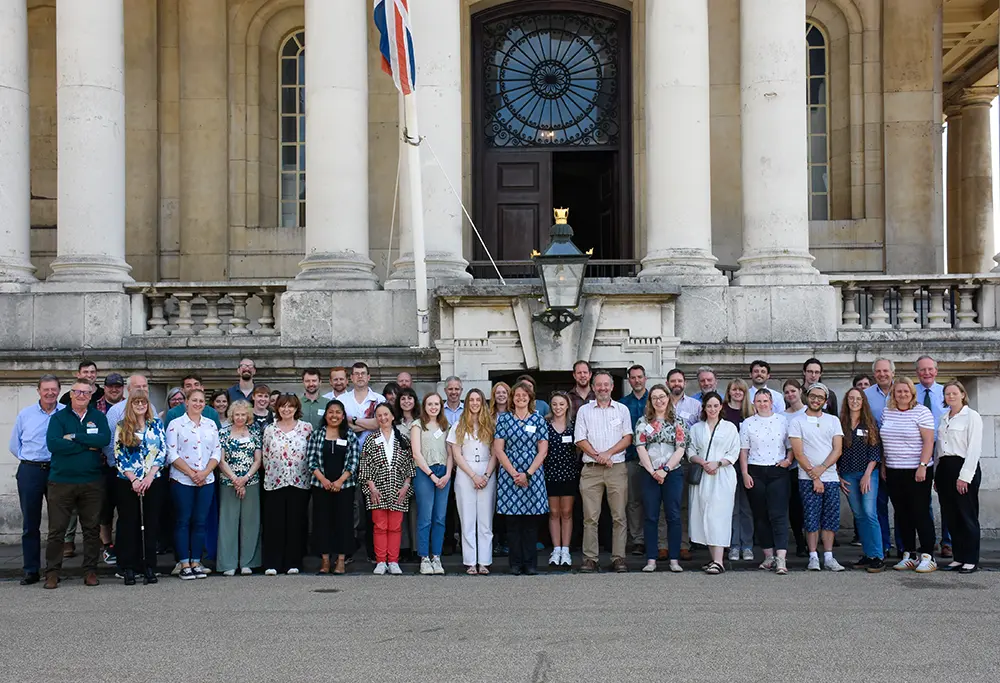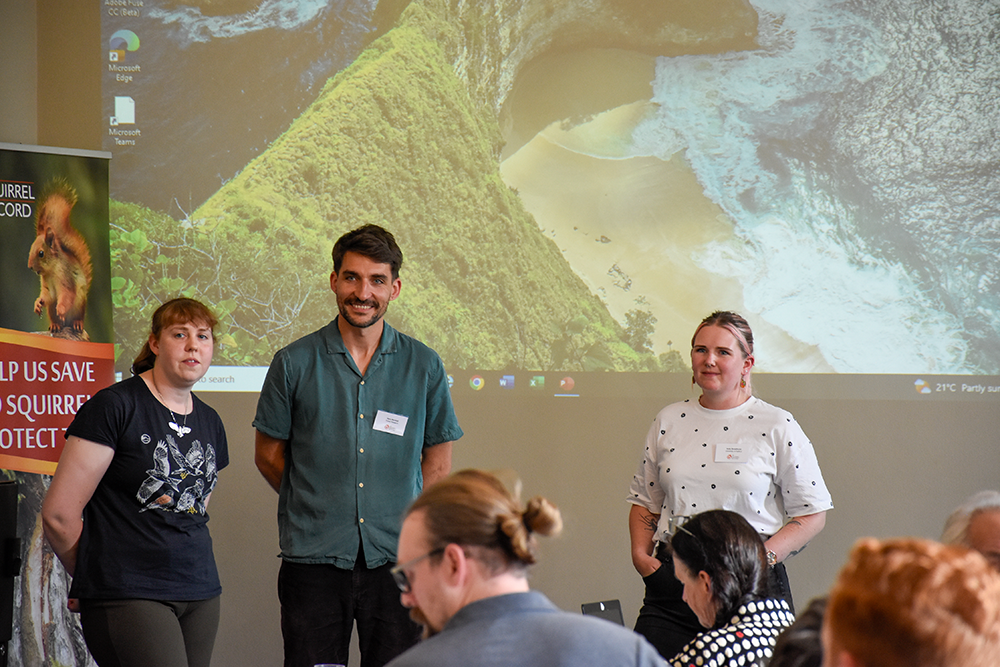
The Natural Resources Institute (NRI) played an active role in the UK Squirrel Accord's 10th Anniversary Conference, held on 25–26 June 2025 at the University of Greenwich. The two-day event brought together researchers, policymakers, conservationists and land managers to reflect on a decade of collaborative work to protect the UK’s native red squirrel and manage the impacts of the invasive grey squirrel.
With a full agenda covering topics such as squirrel conservation strategy, red squirrel recovery, urban ecology, and disease transmission, the conference highlighted the complex challenges and collaborative responses involved in managing invasive species and supporting native biodiversity.
NRI researchers Dr Katie August and Professor Steven Belmain featured in the final session of the first day, focused on disease ecology and the One Health approach. Chaired by Professor Belmain, the session explored how grey squirrels interact with ecosystems in ways that affect both wildlife and human health.

Dr August co-presented with Dr Holly Broadhurst (University of Salford), sharing their joint research on the possible role of grey squirrels in the ecology of Lyme disease in the UK. Lyme disease is a bacterial infection that can be spread to humans by infected ticks. Their interdisciplinary approach sheds light on how invasive species may influence tick-borne disease dynamics – a growing concern under changing environmental conditions. Dr. August said, “It was really inspiring to have so many different stakeholder groups with a common cause all in the same room, and a wonderful opportunity to share our research on the grey squirrel’s role in Lyme disease ecology.”
Other speakers in the session included Dr Harry Marshall (from Forest Research), who discussed stakeholder perceptions and the value of a One Health lens in managing grey squirrels and disease risk.
NRI’s Dr Dan Bray also attended the meeting, as his research involves understanding the behaviour of ticks feeding on squirrels, determining what odours from squirrels ticks can detect. Dr Bray said, “Understanding how ticks detect their hosts will help in developing new methods to reduce both tick feeding and Lyme disease transmission.”
The day concluded with a closing address by Sir William Worsley, Chair of the Forestry Commission, who reflected on the UK’s evolving woodland strategy and the importance of collaborative action in tackling biodiversity threats.
As a co-sponsor of the event, the University of Greenwich underscored its commitment to interdisciplinary environmental research. NRI’s contributions to the conference exemplified this ethos, bridging ecological science, public health and wildlife management.

